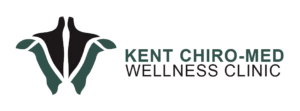Post Surgery Physiotherapy in Ottawa
Accelerate your recovery by up to 40% with our expert post-surgery rehabilitation services. Don't miss this vital step in your healing journey.
- Personalized, evidence-based rehabilitation programs.
- Expert physiotherapists using advanced recovery techniques.
- Comprehensive post-surgical care in Downtown Ottawa.

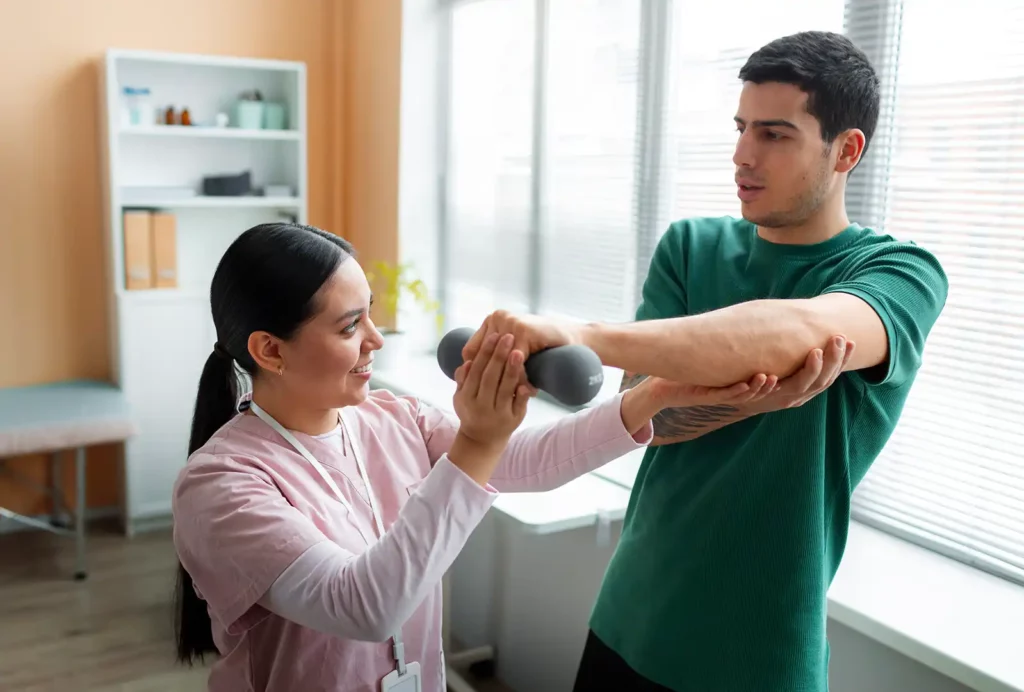

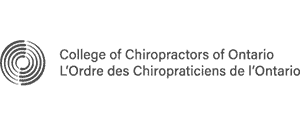
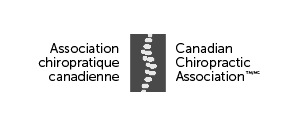

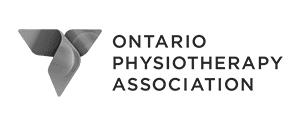
Physiotherapy for Post Surgery Recovery Starts Here
At Kent Chiro-Med Wellness Clinic in Downtown Ottawa, we understand that effective post-surgery rehabilitation is crucial for optimal recovery. Skipping this vital step can lead to prolonged healing times, chronic pain, and reduced mobility. Our expert physiotherapists develop tailored rehabilitation plans that help you recover faster after surgery.
Our expert physiotherapists create evidence-based rehabilitation plans that help you heal faster, regain strength, and return to your normal activities sooner. Research shows that patients who begin physiotherapy within 24 hours after surgery experience significantly better outcomes.
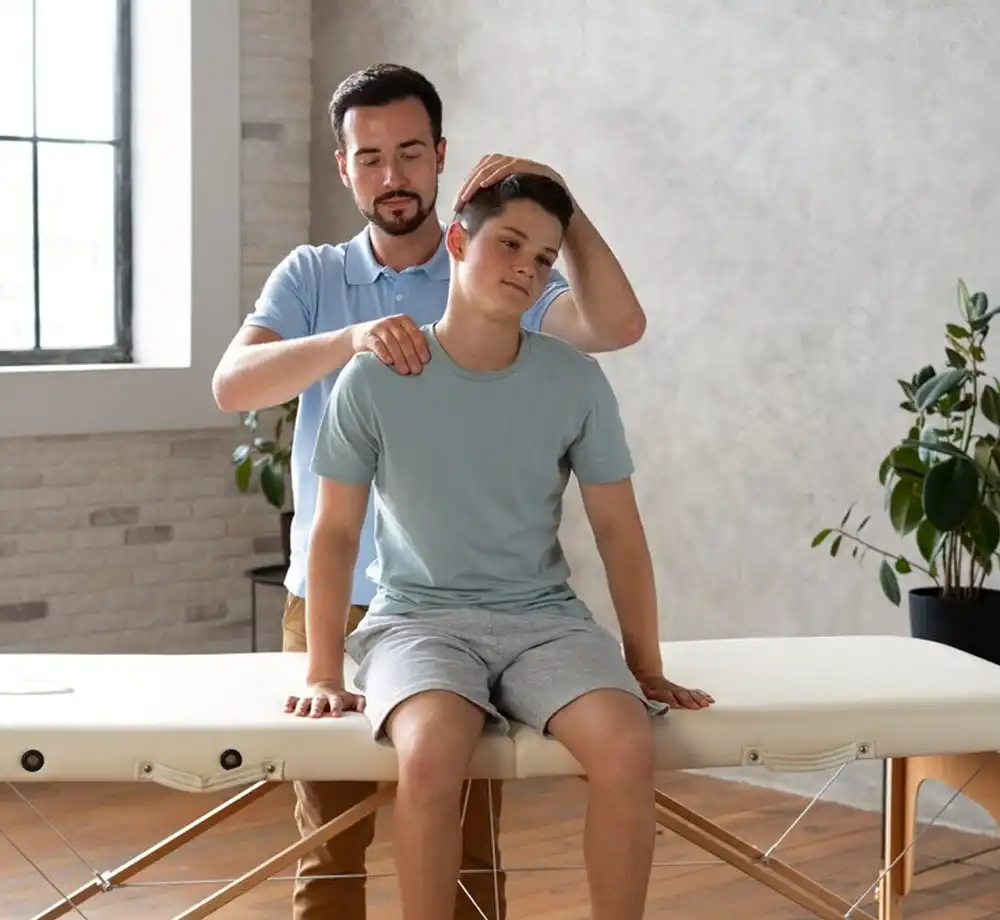

Ghaith Dhaidan – Expert Physiotherapist
Ghaith Dhaidan - Expert Physiotherapist
With nine years of military medical experience, Ghaith brings exceptional expertise in trauma care and post-operative rehabilitation to your recovery journey. His extensive training ensures you receive the highest standard of post surgery physiotherapy and care available in Ottawa.
Ghaith specializes in creating simple, effective rehabilitation plans that yield remarkable results. His patients consistently report faster recovery times and improved outcomes compared to standard post-surgery care.
The Benefits of Post-Surgery Physiotherapy
Post surgery physiotherapy offers numerous benefits that dramatically improve your recovery process. Our expert rehabilitation services help you:
Accelerated Recovery
Proper physiotherapy helps you heal up to 40% faster after surgery. Starting gentle movement within 24 hours after most procedures keeps muscles strong and promotes circulation to healing tissues.
Our structured approach includes 3-4 sessions weekly to rebuild strength and endurance, helping athletes return to sports 8-12 weeks sooner than with standard care.
Enhanced Mobility & Strength
Our specialized exercises focus on restoring your range of motion and rebuilding muscle strength in the affected area. We concentrate on developing core stability and joint flexibility to ensure you can return to your normal activities quickly.
Hands-on therapy techniques address weakened muscles while improving overall functional movement patterns.
Reduced Risk of Complications
Studies show that patients aged 40-60 who receive physiotherapy after surgery reduce their complication risk by 60%. Proper exercises prevent blood clots, respiratory issues, and muscle atrophy.
Early mobilization improves circulation and accelerates healing, while specialized breathing techniques can reduce infection risk by up to 40%.
Effective Pain Management
Our skilled team employs evidence-based methods like manual therapy, controlled cold/heat application, and therapeutic exercises to minimize post-surgical pain without excessive medication.
These techniques reduce inflammation and improve joint mobility while controlling discomfort throughout your recovery journey.
Prevention of Future Injuries
Post-surgery physiotherapy rebuilds proper movement patterns and muscle coordination that help prevent reinjury. Our rehabilitation programs teach you how to maintain optimal biomechanics during daily activities and sports.
You’ll learn proper warm-up routines, sport-specific strengthening, and early warning signs of potential problems.
Return to Sports & Activities
For athletes and active individuals, our sport-specific rehabilitation protocols ensure you can safely return to your preferred activities with confidence. We implement progressive training that rebuilds the specific strength and coordination patterns your sport demands.
Our approach has helped countless patients return to competition or recreational activities faster than expected.
Our Post-Surgery Rehabilitation Results
Our Post-Surgery Physiotherapy Services
We offer comprehensive rehabilitation solutions tailored to your specific surgical procedure, fitness level, and recovery goals:

Personalized Treatment Plans
Our team creates customized four-week rehabilitation programs based on your surgery type, healing stage, and activity goals. These structured plans include clear progression benchmarks to ensure optimal recovery.
Each plan combines hands-on therapy, targeted exercises, and pain management strategies that evolve as you progress through your healing journey.
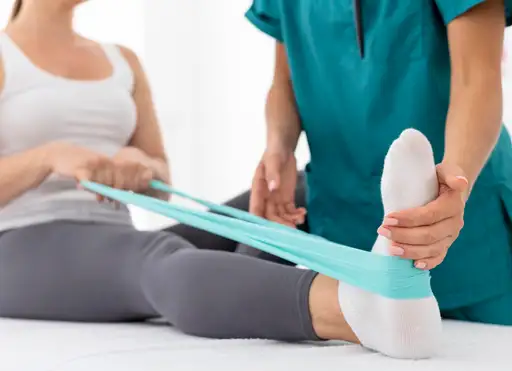
Rehabilitation Exercises
We provide specialized exercises that systematically rebuild strength, flexibility, and coordination in the affected area. Our expert physiotherapists demonstrate proper technique and progression to maximize results while ensuring safety.
Our program includes stretching, strength work, and core stability exercises that begin gently and advance appropriately as healing progresses. Also, our physiotherapy treatment sessions are designed to restore range of motion and strengthen weakened muscles after surgery.
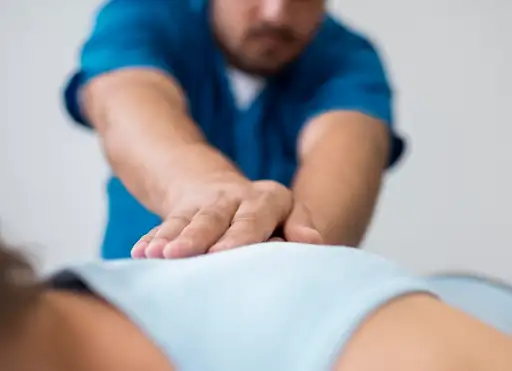
Manual Therapy
Our skilled practitioners employ hands-on techniques to release tight muscles, improve joint mobility, and accelerate tissue healing. These methods include soft tissue mobilization, joint manipulation, and targeted pressure point therapy to reduce pain.
Manual therapy works synergistically with exercise to achieve faster, more complete recovery after surgery.
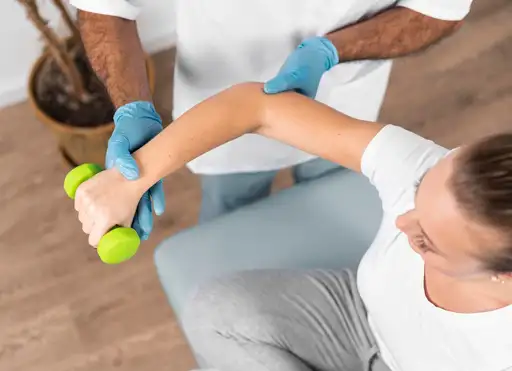
Pain Management Techniques
We implement proven pain control methods beginning immediately after surgery. Our approach includes appropriate use of ice therapy, heat treatment, and specialized manual techniques to reduce discomfort.
You’ll learn five key breathing and relaxation techniques that help manage pain without excessive medication. We also utilize therapeutic modalities that deliver gentle electrical impulses to interrupt pain signals.
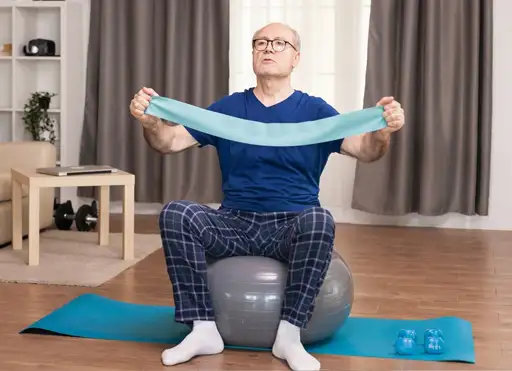
Home Exercise Programs
Continuing your rehabilitation between clinic visits accelerates recovery. We provide comprehensive home exercise plans featuring 6-8 targeted movements specific to your surgical procedure and recovery stage.
Each program includes clear video demonstrations, printed guides, and progress tracking tools. Consistent home practice can reduce overall healing time by up to 40%.

Return-to-Activity Planning
For athletes and active individuals, we develop strategic plans for safely resuming sports and recreational activities. These protocols include sport-specific training, progressive loading, and functional movement assessment to ensure you’re fully prepared to return.
Our return-to-play guidelines have helped professional and recreational athletes alike achieve successful comebacks after surgery.
Our Rehabilitation Process
At Kent Chiro-Med, we follow a structured, evidence-based approach to post-surgery rehabilitation that maximizes your recovery potential:
Comprehensive Assessment
Your journey begins with a thorough evaluation of your surgical procedure, current healing status, and pre-surgery function. We assess your range of motion, strength, pain levels, and movement patterns to establish a baseline for your recovery plan.
Personalized Treatment Planning
Based on your assessment, we create a tailored rehabilitation program with clear phases, goals, and timelines. This plan incorporates the most effective treatment approaches for your specific surgery and considers your lifestyle and activity goals.
Early Mobilization & Pain Management
Early mobilization is key; our post-operative physiotherapy begins as soon as you are medically cleared, helping to reduce stiffness and improve circulation to the healing tissues, while we concurrently implement effective pain control strategies to ensure your comfort throughout the rehabilitation process.
Progressive Strengthening & Conditioning
As healing advances, we systematically rebuild strength, endurance, and coordination through carefully selected exercises that progress in intensity. This phase focuses on restoring normal movement patterns and functional capacity.
Functional Rehabilitation
The final phase prepares you for returning to normal activities with exercise programs that mimic the demands of your daily life, work, or sports. We ensure you have the strength, coordination, and confidence to resume these activities safely.
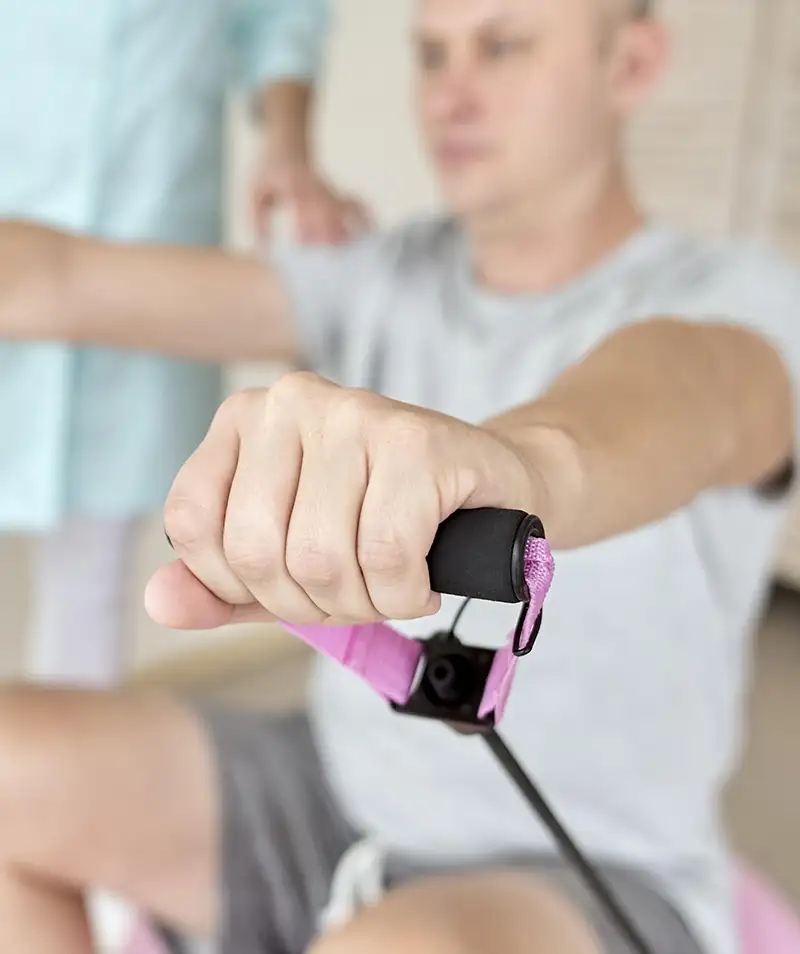
Why Choose Kent Chiro-Med for Post-Surgery Physiotherapy
Our clinic offers exceptional advantages that ensure you receive the highest quality post-surgical rehabilitation available in Ottawa:
Experienced & Qualified Physiotherapists
Our team brings over 15 years of specialized post-surgery rehabilitation experience. Each practitioner maintains advanced certifications in sports medicine, manual therapy, and post-operative care through ongoing professional development.
We stay current with the latest rehabilitation techniques and research to deliver the most effective recovery strategies.
State-of-the-Art Equipment & Techniques
Our clinic utilizes advanced therapeutic technologies including ultrasound, electrical stimulation units, and therapeutic lasers to enhance recovery. These modern tools complement our manual techniques to reduce pain and accelerate healing.
Our facility features specialized exercise equipment for building strength, balance, and functional movement patterns essential for complete recovery.
Comprehensive & Integrated Approach
We provide complete care that addresses all aspects of your recovery through a combination of manual therapy, targeted exercises, pain management, and movement retraining. Our physiotherapists collaborate with your surgeon to ensure coordinated care.
Regular progress assessments allow us to adapt your program as needed to keep you on the optimal recovery path.
Focus on Patient Education & Empowerment
We believe informed patients recover faster. Our team teaches you the proper techniques to support your recovery, manage pain, and prevent future injuries. This knowledge helps you take an active role in your rehabilitation.
We provide clear guidelines, instructional videos, and mobile applications to monitor your progress and ensure proper technique during home exercises.
Proven Track Record of Success
Our rehabilitation programs have helped countless patients achieve exceptional outcomes. In 2023 alone, we supported five Olympic athletes through successful post-surgery recovery, and 90% of our shoulder surgery patients regained complete range of motion.
Patients who follow our comprehensive recovery plans typically heal four weeks faster than average.
Convenient & Accessible Care
Located in downtown Ottawa with free parking, our clinic offers extended evening and weekend hours to accommodate your schedule. We provide direct insurance billing and work with most major insurance providers to simplify the financial aspects of your care.
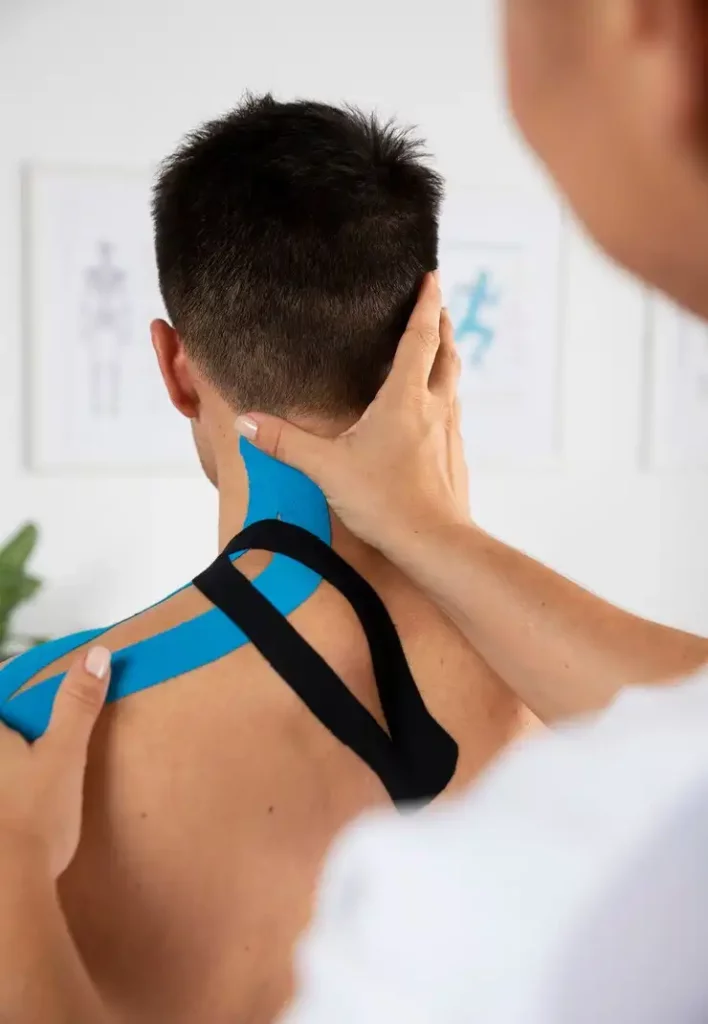
In-Depth Post Surgery Physiotherapy Insights in Downtown Ottawa
At Kent Chiro-Med in Downtown Ottawa, our approach to post surgery physiotherapy is built on precision, care, and innovation.
Our process begins with a comprehensive diagnosis of your surgical procedure and an evaluation of your current range of motion. Whether you have undergone orthopedic surgery, abdominal surgery, or another type of surgical procedure, we design a personalized rehabilitation plan. This plan incorporates gentle manual therapy and therapeutic exercises that focus on reducing stiffness and promoting tissue healing.
Our post-operative rehabilitation program is tailored to help you regain strength and mobility quickly. By combining physical therapy, specialized post-surgical physiotherapy, and targeted pain management techniques, we ensure a smooth recovery after surgery. This integrated approach not only speeds up the healing process but also prevents complications—helping you to return to normal activities and enjoy a better quality of life.
Patient Success Stories
Expanded Post Surgery Physiotherapy Insights
At our clinic, our operative approach combines advanced physio techniques with comprehensive post-surgery rehabilitation protocols. In fact, physiotherapy post surgery is a cornerstone of our post-operative rehabilitation physiotherapy services, and we know that physiotherapy can help patients regain physical activity levels quickly. Even in cases of post surgical rehabilitation, we design a tailored rehabilitation programme that addresses pre and post-surgery needs.
Each personalized rehabilitation plan is built on the philosophy of physiotherapy after surgery that physiotherapy is often recommended. We even advise pre-surgery physiotherapy when possible, as physiotherapy involves both strengthening and mobility training. Our innovative rehabilitation programs ensure quality care while we use a single mention of post-surgery physiotherapy (in our title) to avoid repetition.
For our post operative cases—including thoracic surgery—a physiotherapist may guide you carefully following your surgical procedure. We address pain and swelling by prescribing simple exercises and exercises to restore function. Additionally, our sessions include balance and proprioception exercises along with preoperative physiotherapy methods for effective rehabilitation of the surgery site to ensure a successful recovery.
Whether you’re undergoing hip replacement surgery or another procedure, our approach incorporates enhanced recovery after surgery principles with specific exercises designed for anyone who has had surgery. We also consider patients with low exercise tolerance and reduced capacity as well as those with exercise tolerance and reduced independence. By addressing both physical and psychological factors, we help reduce frustration and anxiety so you can benefit from post care.
Our team evaluates patients who have undergone careful assessments – including those who have undergone orthopedic surgery – to create a program to help help strengthen and strengthen your muscles through gentle manual therapy that improves joint motion and maintains muscle function without compromise.
We also employ innovative mechanisms and strength training along with balance and proprioception tasks at every stage of your post-operative recovery to help you achieve a complex functional goal. By minimizing stiffness and pain as well as pain and inflammation, we ultimately help you recover faster.
Our expertise extends to cardiac and abdominal cases with post-operative physiotherapy that plays a crucial role in recovering from cardiac or abdominal surgery via dedicated cardiac rehabilitation techniques. With our approach, physiotherapy can reduce recovery times when you start physiotherapy, thereby improving your overall health and care and helping you resume daily activities—even when surgery leads to temporary limitations—as post-operative recovery starts at the surgical site where targeted exercises help drive effective postoperative rehabilitation.
Post Surgery Physiotherapy FAQs
Post-operative rehabilitation ideally begins right after surgery. Your physiotherapist will guide you through gentle, appropriate exercises based on your specific procedure and healing process. Early intervention is crucial—research shows that starting physiotherapy within 24 hours of surgery can accelerate recovery by up to 40%.
A typical session includes assessment of your healing progress, manual therapy techniques to improve mobility and reduce pain, specific exercises to build strength and function, and education about home exercises. Your physiotherapist will adjust treatment based on your progress and healing stage, gradually increasing intensity as you improve.
The duration varies depending on your surgery type, overall health, and recovery goals. Hip and knee replacement patients typically require 6-12 weeks of care, while some procedures may need longer rehabilitation. Your physiotherapist will provide a timeline based on your individual circumstances and adjust as needed throughout your recovery.
Yes, physiotherapy is highly effective for managing post-surgical pain. Our approach combines gentle manual therapy, appropriate modalities like ice or heat, controlled exercise, and education about pain management strategies. These techniques not only provide immediate comfort but also address the underlying causes of pain to promote lasting relief.
Most surgical procedures benefit from post-operative rehabilitation, including orthopedic surgeries (joint replacements, ligament repairs, fracture fixation), abdominal surgeries, cardiac procedures, spinal operations, and more. Even minimally invasive procedures can benefit from proper rehabilitation to ensure optimal recovery and function.
Most extended health insurance plans cover post-surgery physiotherapy. At Kent Chiro-Med, we offer direct billing to most major insurance providers. Our administrative team can verify your coverage and explain any out-of-pocket expenses before you begin treatment. We work with clients to maximize their insurance benefits for both physiotherapy ($1,000) and chiropractic ($500) services when appropriate.
Ready to Accelerate Your Post-Surgery Recovery?
Don’t miss this crucial step in your healing journey. Our expert team is ready to help you regain strength, mobility, and confidence after surgery.
